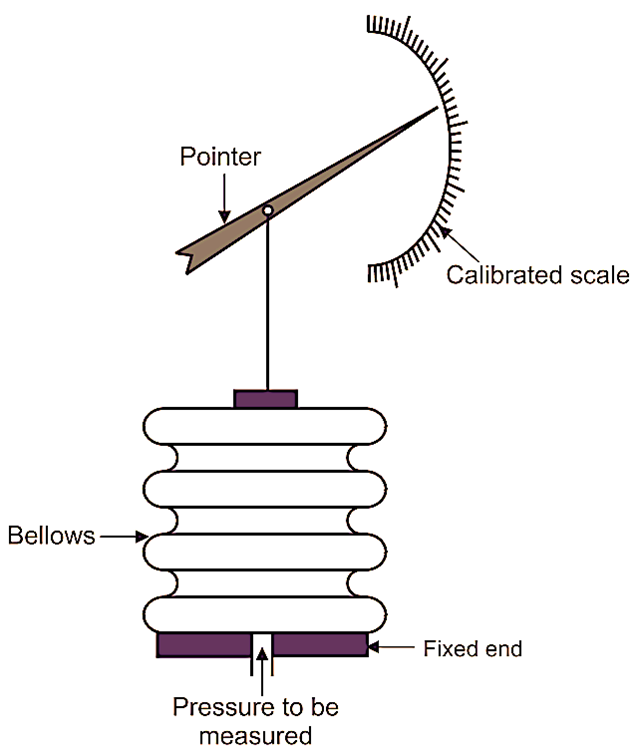Bellows is a longitudinally expansible and collapsible member consisting of several turns (convolutions) or folds. Thus, the bellows is a series of circular parts resembling the folds. Bellows has long length and it is made up of metal alloy, which ¡s ductile and retains its properties over long use. Commonly used materials are brass, bronze, beryllium, copper alloy, steel, alloy of nickel etc.
They are formed in such a way that, they expand or contract axially with the change in pressure.

Fig. 1: Bellows Pressure Gauge.
Advantages of bellows pressure gauge
- Moderate cost.
- Suitable for absolute pressure as well as gauge pressure.
- It can be used for measuring low and moderate pressure.
Disadvantages of Bellows Pressure Gauge
- It requires ambient temperature compensation.
- It is not suitable for high pressure measurement.
Selection of Material for BeIIows
Factors affecting selection of Material for bellows:
- Strength,
- Pressure range,
- Hysteresis,
- Corrosiveness due to environmental impacts, and
- Ease of fabrication etc.
Commonly used materials:
- Trumpet Brass,
- Stainless Steels,
- Phosphor Bronze, and
- Beryllium Copper.